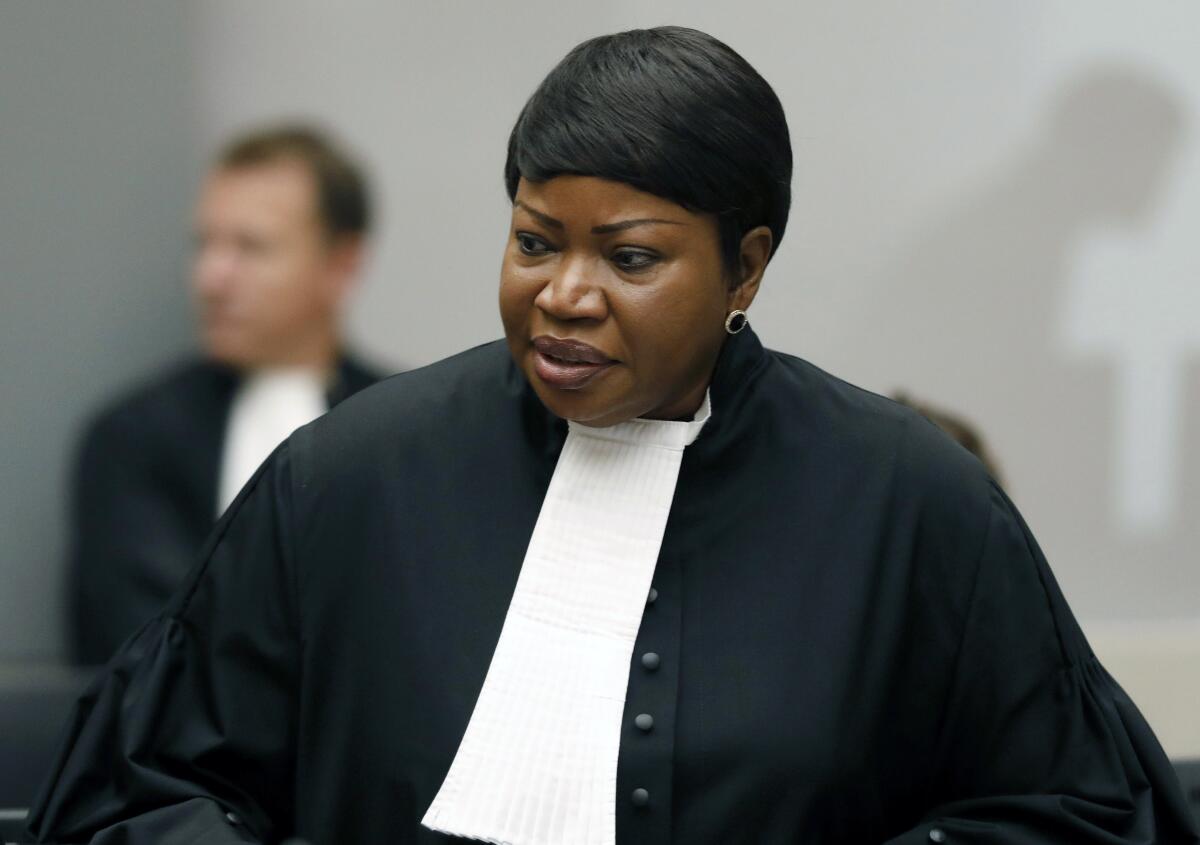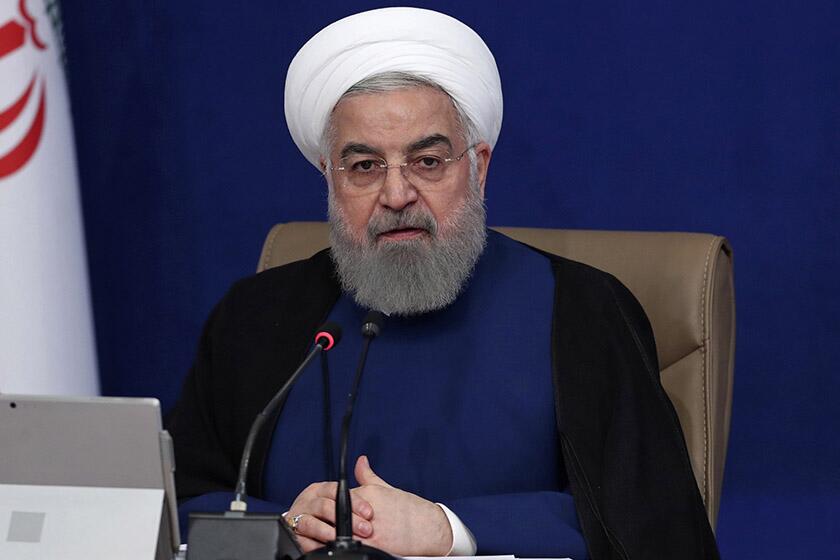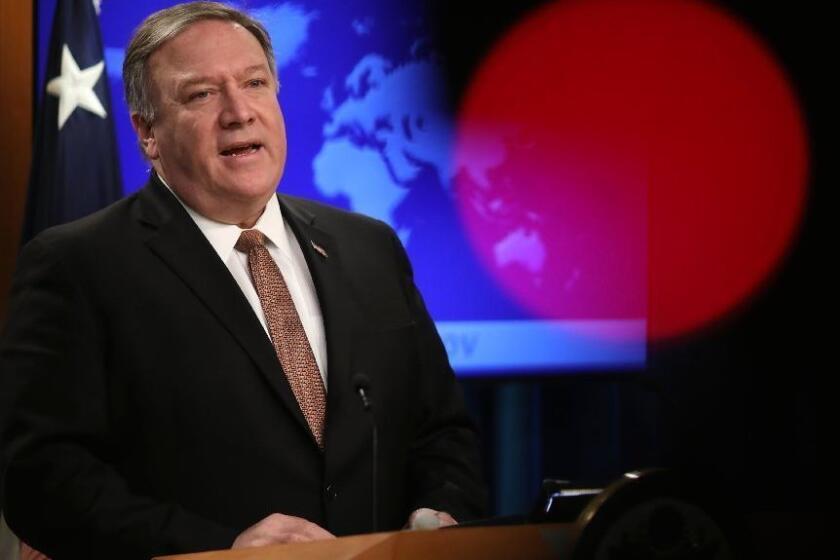Biden lifts Trump sanctions on International Criminal Court officials

- Share via
President Biden has lifted sanctions that former President Trump had imposed on two top officials of the International Criminal Court, undoing one of the past administration’s more aggressive moves targeting international institutions and officials.
In a statement announcing the reversal of Trump’s executive order, Secretary of State Antony J. Blinken emphasized Friday that the United States still strongly disagreed with some actions by the court, based at the Hague, that is charged with handling genocide, crimes against humanity and war crimes. The United States is not one of the about 120 member countries of the court and has objected to court cases involving Israel as well as U.S. troops in Afghanistan.
“We maintain our longstanding objection to the Court’s efforts to assert jurisdiction over personnel of non-States Parties such as the United States and Israel,” Blinken wrote. “We believe, however, that our concerns about these cases would be better addressed through engagement with all stakeholders in the ICC process rather than through the imposition of sanctions.”
The removal of the sanctions was the latest signal that the Biden administration is intent on returning to the multilateral fold. The Trump administration had unapologetically removed the United States from numerous international institutions and agreements and harshly criticized others, including the ICC, deeming them flawed and working against American interests.
Since Biden took office, his administration has rejoined the World Health Organization, re-engaged with the U.N. Human Rights Council, returned to the Paris climate accord and on Friday started talks aimed at returning to the Iran nuclear deal. Trump had pulled out of all five.
The Biden administration will join Iran and other world powers next week in talks aimed at reviving the 2015 nuclear deal that Trump sought to kill.
The court was created to hold accountable perpetrators of war crimes and crimes against humanity in cases in which adequate judicial systems were not available. The U.S. has not joined the ICC, which began operations in 2002 after enough countries ratified the treaty that created it, because of concerns the court might be used for politically motivated prosecutions of American troops and officials.
Silvia Fernandez de Gurmendi, president of the court’s management body of member states, said the U.S. removal of sanctions was helpful in promoting “a rules-based international order.” She noted the court and its managing states are currently studying the tribunal’s procedures to improve its work providing accountability in the worst crimes of international concern.
Rights groups on Friday applauded Biden for throwing out Trump’s sanctions — Amnesty International called those an “act of vandalism” against international justice — but called for Biden to go further, by supporting the court’s work and making the United States a member country.
Under Trump, the U.S. sanctions had targeted ICC chief prosecutor Fatou Bensouda and the court’s head of jurisdiction, Phakiso Mochochoko, for pressing ahead with investigations into the United States and its allies, notably Israel, over war crimes allegations. Two sets of sanctions were imposed, the first being a travel ban on Bensouda in March 2019, and then 18 months later a freeze on any assets she and Mochochoko may have in the United States or U.S. jurisdictions. The second round also made giving the pair “material support” a potentially sanctionable offense.
The Trump administration said Friday it will revoke or deny U.S. visas for judges, lawyers or other members of a major international tribunal if they investigate or prosecute U.S. soldiers for potential war crimes.
Both sets of sanctions had been roundly denounced by the ICC itself as well as a number of court members and human rights groups. When former Secretary of State Michael R. Pompeo imposed the financial penalties in September 2020, he attacked the court as “a thoroughly broken and corrupt institution” and said, “We will not tolerate its illegitimate attempts to subject Americans to its jurisdiction.”
U.S. presidents since Bill Clinton have expressed deep reservations about the court, although some, including President Obama, agreed to limited cooperation with it.
The Trump administration, however, was openly hostile to the tribunal and lashed out at Bensouda and others for pursuing prosecutions of Americans for actions in Afghanistan and Israelis for actions against the Palestinians.
More to Read
Get the L.A. Times Politics newsletter
Deeply reported insights into legislation, politics and policy from Sacramento, Washington and beyond. In your inbox three times per week.
You may occasionally receive promotional content from the Los Angeles Times.












